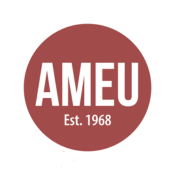Reviewed by Jane Adas
Dundurn Press, 2013, 302 pp., softcover.
The writing in “Contested Land, Contested Memories” has the objective precision of a legal scholar and the openheartedness of a human rights advocate. Its author, Jo Roberts, is a British lawyer who for five years was the managing editor of the New York Catholic Worker. During that time she observed that because of guilt about Christian anti-Semitism, the publication “… is fearless in tackling some of the day’s thorniest issues, it nevertheless avoided speaking about the situation in Israel’s Occupied Territories.”
Some years later as a volunteer with the International Women’s Peace Service, Roberts lived in Hares, a village near Nablus, neither of which was identified on her Israeli tourist maps. These experiences led her to think deeply about “how vital an element in reconciliation and healing is the acknowledgement of another’s pain.”
Roberts points out that Nakba (in Arabic) and Shoah (in Hebrew) both mean catastrophe. Her focus in “Contested land, Contested Memories” is how the ghosts of both have influenced “Israel’s engagement with the Palestinian Nakba of 1948.” Through careful research and numerous interviews with Jewish and Palestinian Israelis, Roberts examines attitudes towards the events of 1948. She listens to internally displaced Palestinians whose concerns were not addressed in the Oslo peace process; Holocaust survivors whose trauma was unacknowledged until the Eichmann Trial in 1961; Jews from Arab countries who neither experienced the Holocaust nor took part in the Nakba, but who feel compelled to suppress the Arab part of their identity; and young Israeli Jews who rarely encounter Palestinians and were taught only the triumphal narrative of 1948.
A former Israeli ambassador bridles when Roberts uses the term Nakba: “Nakba schmakba. The Jews came back to their homeland. We were landlords; we left; we returned.” A woman of the ’48 generation of Holocaust refugees, now in her eighties, denies that Palestinians were expelled: “It was a war, and they fled. Many stayed. It was a problem. And now they are something like 20 percent of the country. And now they don’t want to go and live in the Palestinian Authority.”
Roberts describes how Israel has manipulated the landscape—planting European-style forests to obscure demolished villages and establishing a Government Names Commission to replace Arabic words with Hebrew. Meron Benvenisti, whose father was on the commission, described this as not even original, something that is “in the genes of settler society.” Noga Kadman, a political geographer and author of “The Depopulated Villages of 1948 in Israeli Discourse” (in Hebrew), tells Roberts that Israelis “are enjoying the fruit that others have planted…. If someone paid a price for something that he was not responsible for, we should try to repair the damage that was done to him.” Eitan Bronstein, co-founder of Zochrot (“remembering” in Hebrew), understands that many Jewish Israelis worry that Nakba awareness will somehow diminish Holocaust remembrance. Yet, because Zochrot believes the “Nakba is the central, unspoken trauma at the core of the Israel/Palestine conflict,” making that missing history visible to Jewish Israelis is essential to achieving a just solution.
The hope is that Zochrot will prevail over Schmakba. ■
